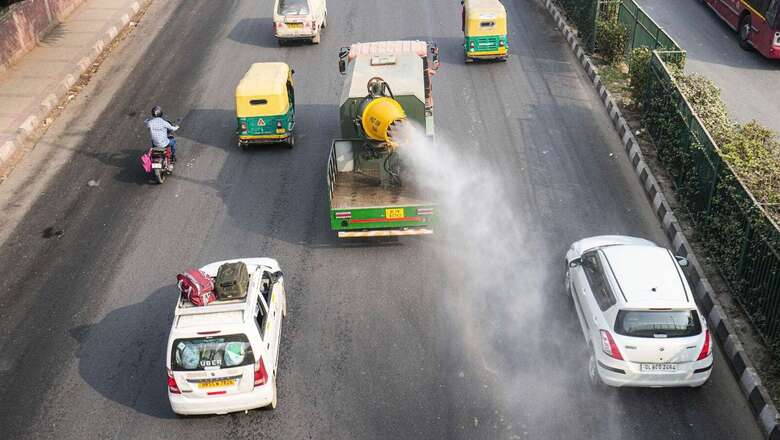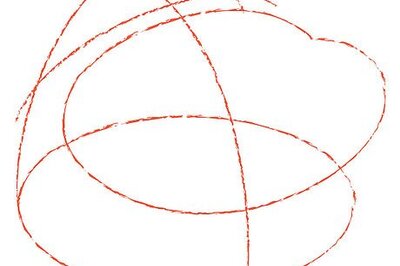
views
The Commission for Air Quality Management on Monday directed authorities to revoke the curbs enforced in Delhi-NCR under stage three of the Graded Response Action Plan with immediate effect. This means construction and demolition activities can resume in the region. However, user agencies need to strictly follow dust control norms.
The CAQM noted that Delhi’s Air Quality Index (AQI) on Monday (294) was about 100 points below the threshold for invoking GRAP stage 3 actions.
“The improvement in AQI is likely to sustain and the forecast does not indicate any steep degradation in the overall air quality in Delhi-NCR in the next few days.
“The sub-committee, accordingly, hereby decides to revoke with immediate effect its order dated October 29 for invoking actions under Stage-III (severe air quality) of GRAP,” the Centre’s air quality panel said in an order.
All construction and demolition work, except for essential projects, was banned in Delhi-NCR under the third stage of GRAP. Brick kilns, hot mix plants and stone crushers were also not allowed to operate. Curbs under stages one and two of GRAP, however, will remain in force in the region.
What is GRAP?
The GRAP is a collection of anti-air pollution measures implemented in the capital and its surrounding areas based on the severity of the situation. Under it, a number of graded measures, depending on the AQI level, are implemented to curb pollution in the city.
GRAP classifies the air quality in the Delhi-NCR under four stages, which kick in accordingly:
Stage I – ‘Poor’ (AQI 201-300)
Stage II – ‘Very Poor’ (AQI 301-400)
Stage III – ‘Severe’ (AQI 401-450)
Stage IV – ‘Severe Plus’ (AQI >450)
News18 Explains the various stages of GRAP and what measures are detailed by authorities:
Stages and Measures
- Stopping of all construction and demolition activities with plot sizes of 500 square metres or greater that have not been registered on dust mitigation monitoring portals.
- mechanised sweeping and road sprinkling
- Enforcing anti-smog gun guidelines on construction sites
- Enforcing the prohibition on open waste burning and PUC (pollution under control norms) for vehicles
- DISCOMs to reduce power outages in the NCR
- Encourage offices to implement a unified commute for employees in order to reduce traffic congestion.
- Hotel tandoors are not permitted to use coal or firewood.
- prohibiting the use of diesel generator sets except for essential and emergency services (hospitals, railways, metro services, airports, water pumping stations, and “nationally significant projects”).
- raise parking fees in order to discourage private transportation
- supplement CNG/electric bus and metro services by purchasing additional fleet and increasing service frequency.
- Construction and demolition activities are prohibited, with the exception of railway, metro, hospital, and sanitation projects, as well as linear public projects such as highways, roads, and flyovers.
- The closure of industries that have PNG supplies but do not use approved fuels. Industries that do not use approved fuels will only be able to operate five days a week in areas where PNG is not available.
- State governments in the National Capital Region may impose restrictions on BS III petrol and BS IV diesel four-wheelers.
- Truck traffic into Delhi must be stopped (except for essentials, CNG and electric trucks)
- Restriction on the use of Delhi-registered diesel medium and heavy goods vehicles in the city, except for essentials.
- Prohibition on the operation of four-wheeled diesel vehicles in Delhi and the districts bordering Delhi, with the exception of BS-VI vehicles and vehicles used for essential or emergency services.
- State governments may consider additional emergency measures such as school closures and odd-even vehicle traffic.
- NCR State governments to decide on allowing public, municipal and private offices to work on 50% strength and the rest to work from home
- Ban C&D activities in linear public projects such as highways, roads, flyovers
Read all the Latest Explainers here

















Comments
0 comment